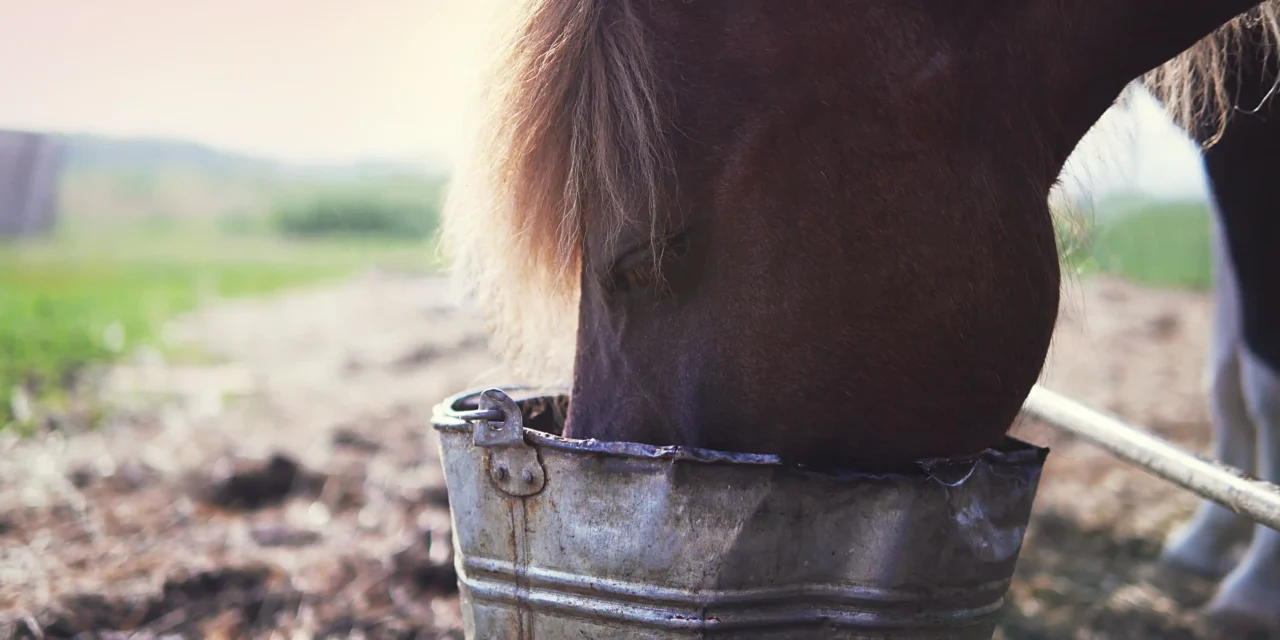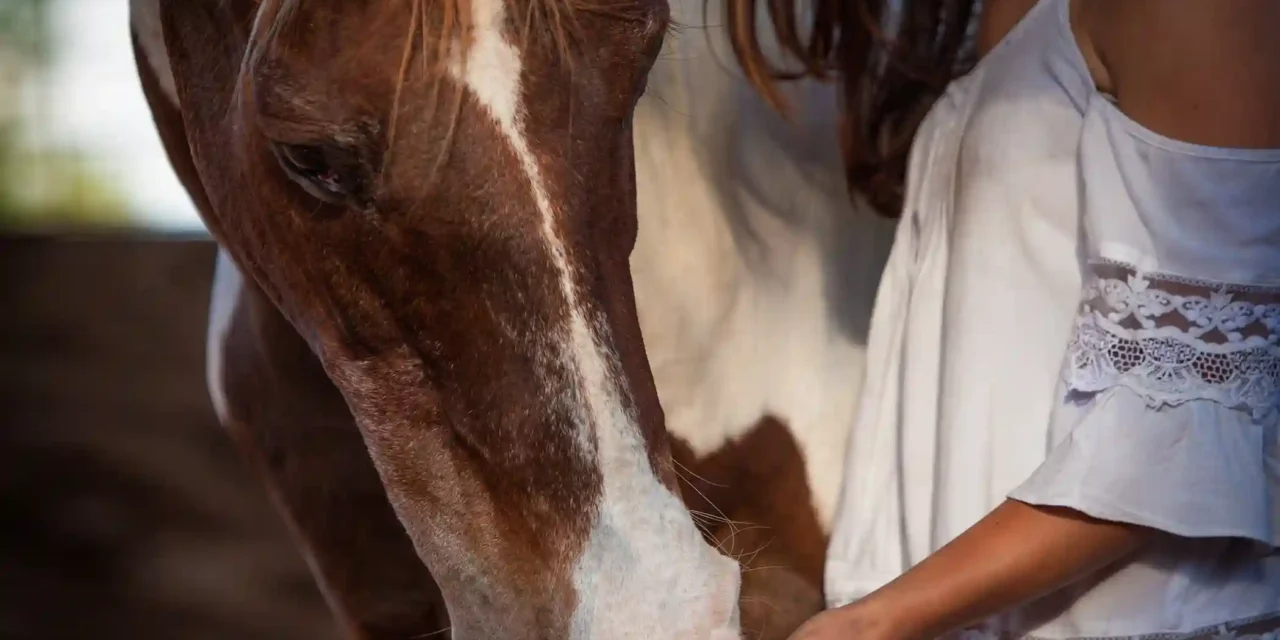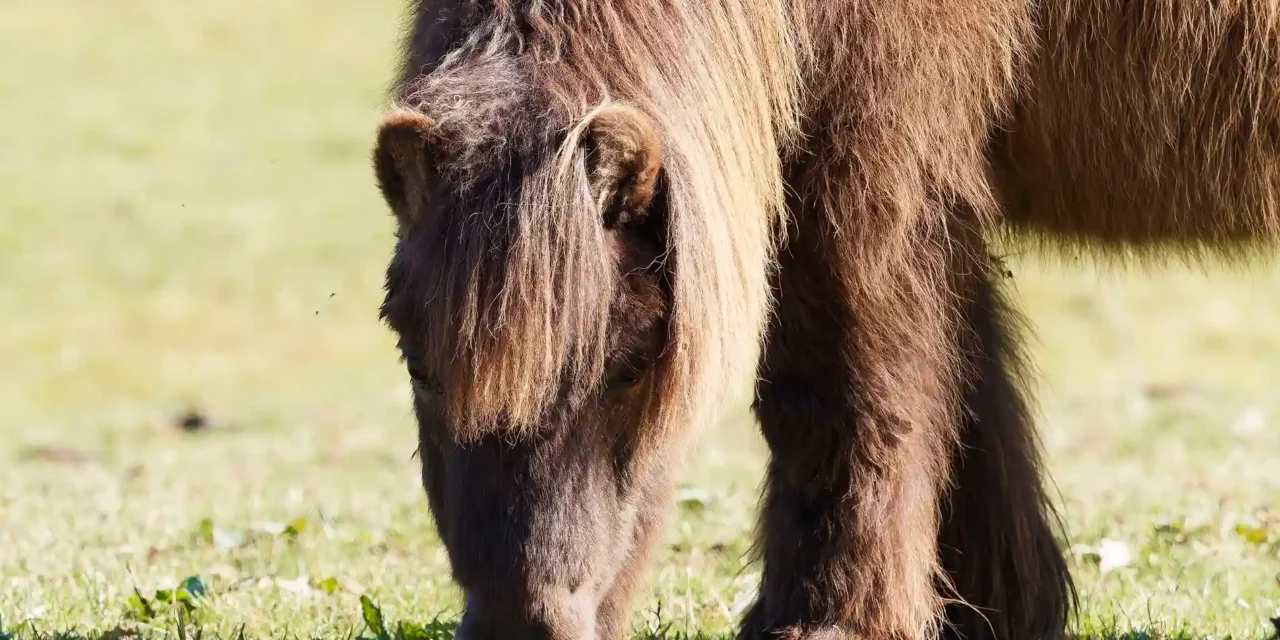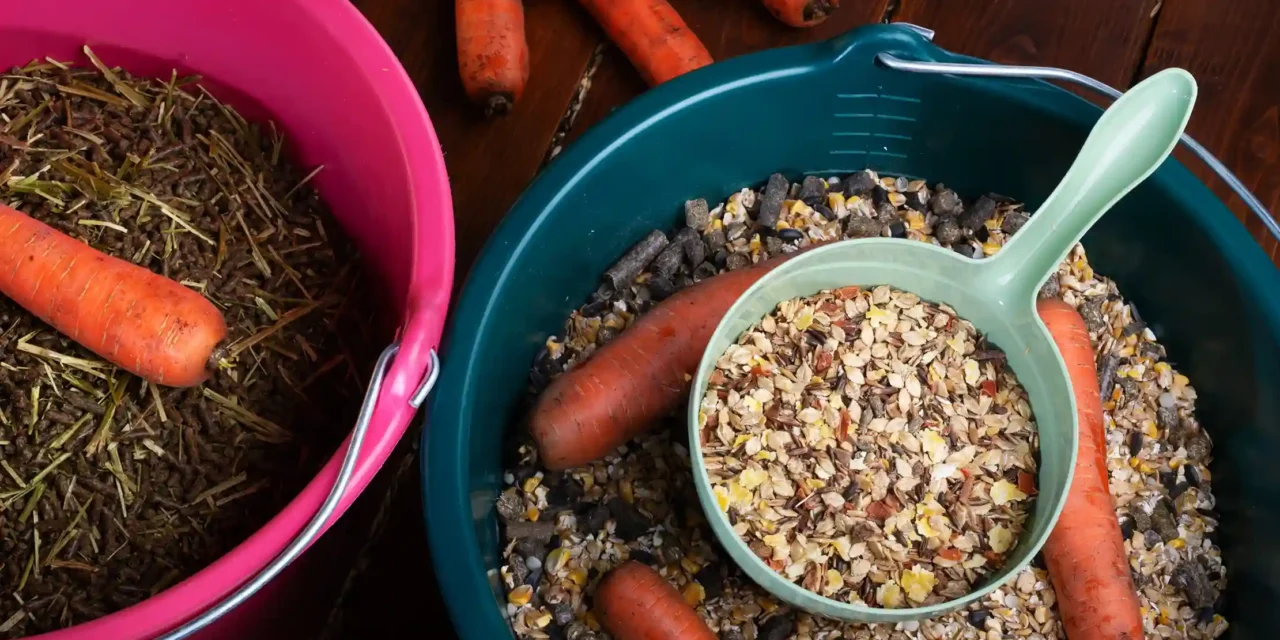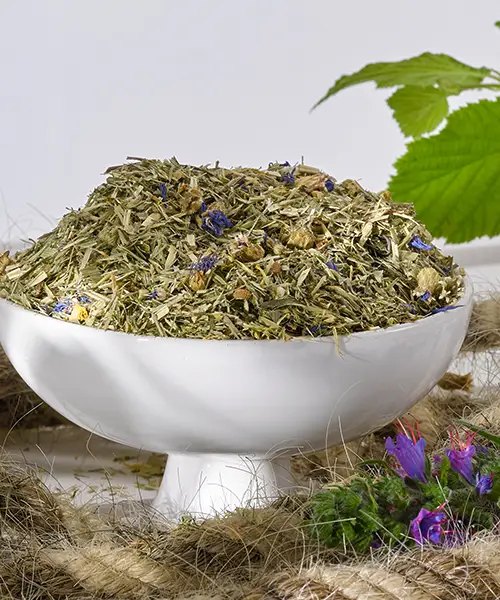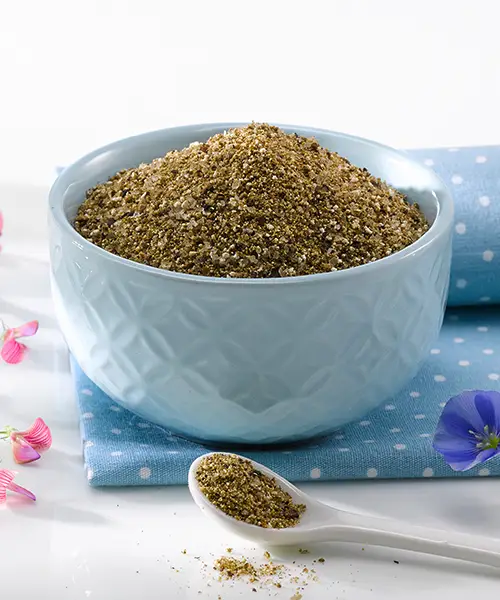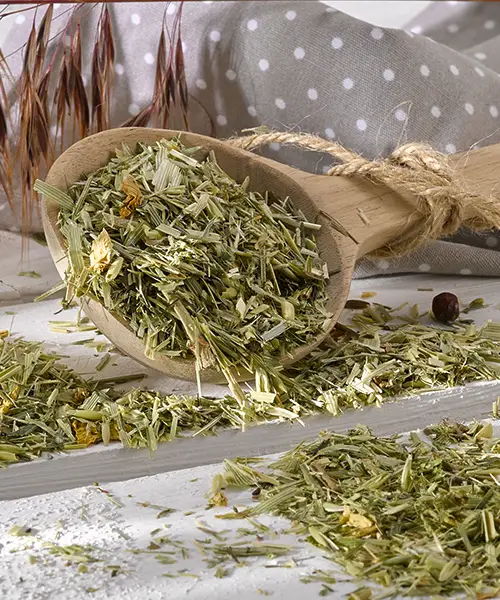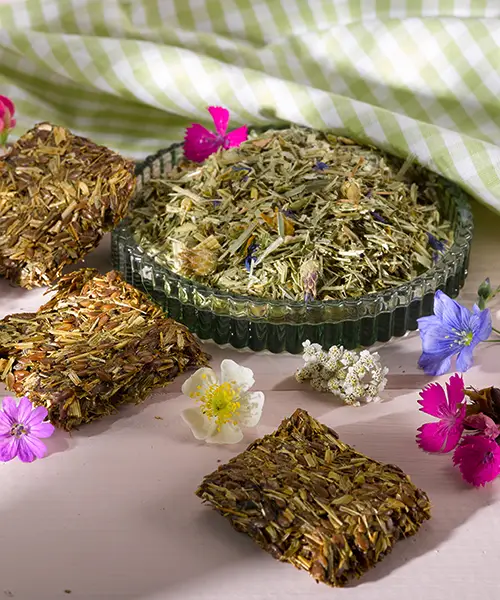Key points at a glance:
- Digestion changes with age – but not every senior needs special feed
- The foundation of nutrition remains high-quality roughage
- The digestive tract works more slowly and less efficiently
- Individual adjustment is more important than ready-made recipes
- Small, frequent meals are better than a few large ones
- Water supply plays a central role
- Observation and regular adjustment of the feeding plan are essential
“Does your horse already get senior muesli?” You will hear this question at the latest once your horse has passed the age of 20. The feed industry suggests to us that aging horses automatically need special feed. But is that really true? As so often, the answer is: it depends.
Aging Begins in the Gut
As horses age, their digestion changes. The gut works more slowly, and nutrients are no longer absorbed as efficiently as in younger years. The microbiome – meaning the entirety of gut bacteria – loses diversity. At first this sounds dramatic, but it does not automatically mean problems. It is all part of the natural aging process.
Many horses compensate for these changes without difficulty, as long as they have enough time to eat and the basic forage is of good quality. Others, however, need support earlier. The difference often lies in the teeth.
The Question of Teeth – Key to the Right Nutrition
A horse with a healthy set of teeth and jaw joint can still chew its hay properly at the age of 25. But if there are dental problems, the mechanical breakdown of fibers becomes more difficult. The result: the horse swallows larger pieces that cannot be digested optimally in the gut. This often starts a vicious circle of poor digestion and weight loss. This cannot be balanced out by simply increasing feed intake, because the more hastily horses try to eat, the less they chew, and the less digestible the swallowed feed becomes.
The Basic Diet for Seniors
Contrary to popular belief, older horses do not automatically need concentrates. The foundation of nutrition remains high-quality roughage, even in old age. The difference lies in how it is provided and how often it is fed.
A good senior diet follows nature: horses are evolutionarily designed to eat small amounts of forage all day long. In old age, this principle becomes even more important. The digestive tract copes much better with many small meals than with a few large ones. Fortunately, the feed industry offers our seniors “pre-chewed hay” in the form of hay pellets, which not only supply the gut with forage but also provide fluid.
Water – the Underestimated Elixir of Life
As horses age, their natural sense of thirst often decreases. At the same time, proper hydration becomes more important than ever for digestion. Older horses often prefer to drink from buckets rather than automatic drinkers. In winter, the water should be slightly warmed – not only because of the cold, but because lukewarm water supports bowel activity since the body does not need to spend extra energy to heat it. Always remember: older horses no longer have energy to waste, they must conserve it carefully. Soaked hay pellets, offered lukewarm, are the ideal solution for older horses.
From Hay to a Meal of Hay Pellets
When chewing becomes more difficult, soaked hay pellets are the best alternative to hay. They provide the same nutrients but are easier to digest. A common mistake, however, is feeding too little of them. A 500-kilo horse needs at least 10 kilos of hay per day – or the equivalent amount in hay pellets. Even if they are sold in sacks, hay pellets are not highly concentrated, nutrient-rich concentrates that should be fed sparingly. Instead, 1 kilo of hay pellets actually replaces 1 kilo of loose hay. And hay pellets are lighter than you might think at first glance.
Practical tip: Weigh the contents of the scoop you use to measure hay pellets on a digital kitchen scale once. In most cases, one scoop is not equal to one kilo, but significantly less.
The Myth of Senior Muesli
Ready-made senior mueslis usually contain mainly cereal flakes and various by-products from the food industry – things a healthy senior does not need at all. On the contrary, many older horses struggle with age-related insulin resistance and therefore should be fed a diet low in sugar and starch. It is better to supplement specifically what is truly missing, for example with a senior mineral feed or herbal blends tailored to the horse’s health issues.
Herbs and More – Natural Helpers
Nature offers many options to support the digestion of aging horses. Classics such as fennel, caraway, and anise promote bowel activity. Dandelion and artichoke support the liver. You can either collect such herbs yourself or buy them as ready-made blends. Make sure that the herbs have a high content of active ingredients, ideally offered in German Pharmacopoeia quality (DAB). Cheap herbal mixtures should always raise suspicion, because high-quality, active-ingredient-rich herbs do come at a price. But they can then truly benefit your horse.
Finding the Individual Path
The art of feeding seniors lies in recognizing the individual needs of your horse. A few guiding points:
Your horse may need support if:
- it takes noticeably longer to eat than before
- wads of hay occasionally fall from its mouth
- body weight drops despite sufficient feed intake
- the manure becomes more fibrous
- watery manure increases
Adjustments with Care
Changes in feeding should always be made slowly. The older digestive system often reacts sensitively to sudden changes. Observe your horse carefully and document changes. What works? What does not? Stay flexible with your adjustments. A competent nutritionist can help you tailor your senior’s feeding plan individually and adjust it continuously so that your horse is optimally cared for.
Quality over Quantity
The best feeding plan for seniors is the one that suits your horse. It does not need to be complicated, but it should be thoughtful. Focus on high-quality basic feeds such as hay and low-sugar hay pellets instead of expensive specialty products like senior muesli. Observe carefully, experiment cautiously, and do not hesitate to seek expert help if you are unsure.
Good nutrition in old age is not rocket science – it mainly requires one thing: time, patience, and attentive observation. Your horse will reward you with stable weight and good digestion.
You can find more information on caring for older horses on our dedicated topic page: Older Horses

